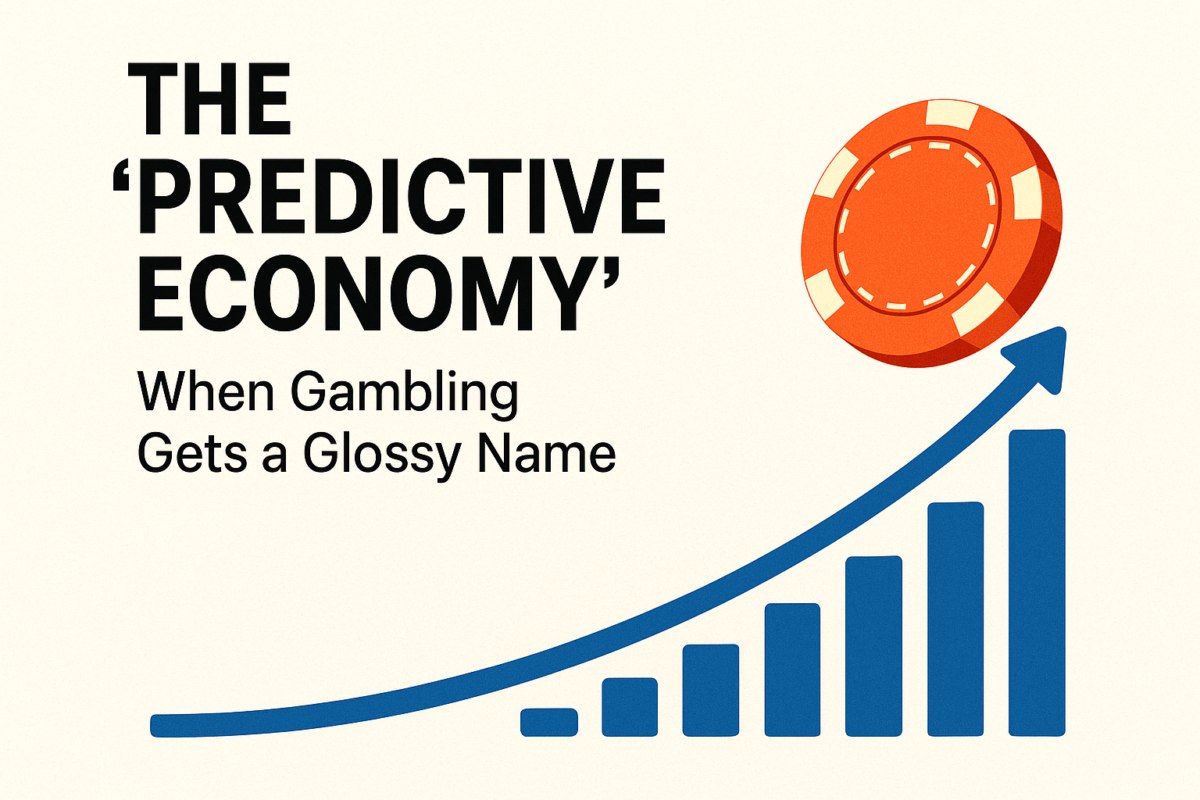In recent years, buzzwords like “predictive economy” have entered the mainstream. On the surface, it sounds impressive, futuristic, and even responsible — a system where data and algorithms help forecast trends, optimize decisions, and create efficiency. But scratch beneath the surface, and it’s often just a rebranding of old vices — particularly gambling and speculative behavior — designed to make profit off the risks and losses of everyday people.
Names Matter
Language is powerful. Calling something a “predictive economy” gives it an air of legitimacy, sophistication, and inevitability. Yet, in many cases, it functions exactly like gambling: participants risk money on outcomes they cannot fully control, with the odds stacked in favor of the house — or in this case, the platform operators and institutional players. By renaming gambling-like activities with corporate or technological jargon, companies can attract participants who might otherwise avoid traditional betting or high-risk markets.—The Profit Motive is ClearRenaming gambling as predictive analytics or predictive markets doesn’t change the mechanics. Money still flows from participants to operators. The participants’ losses are the operators’ profits. The only difference is perception: the glossy terminology frames these risks as smart, forward-thinking decisions, rather than games of chance with real-world consequences.
Societal Impact
This rebranding has real-world consequences. People are drawn into risky financial behavior believing it’s legitimate investing or trend-spotting. They may take on debt, make poor financial choices, or experience stress and anxiety — all while those at the top profit. It’s a modern version of a centuries-old problem: renaming vice to make it socially acceptable while leaving the underlying risk unchanged.
Whenever a system, tool, or trend sounds like it’s too clever to fail — especially when money is involved — it’s worth asking: is this innovation, or just a new label for an old risk? Terms like “predictive economy” should be understood with skepticism, as examples of how marketing can transform perception without changing the fundamental odds.
Buzzwords can obscure reality. “Predictive economy” may sound like progress, but for many, it functions just like gambling: a system designed to generate profit for a few while exposing many to risk and loss. Recognizing these linguistic sleights of hand is the first step toward making informed decisions and avoiding being swept up in the hype.

